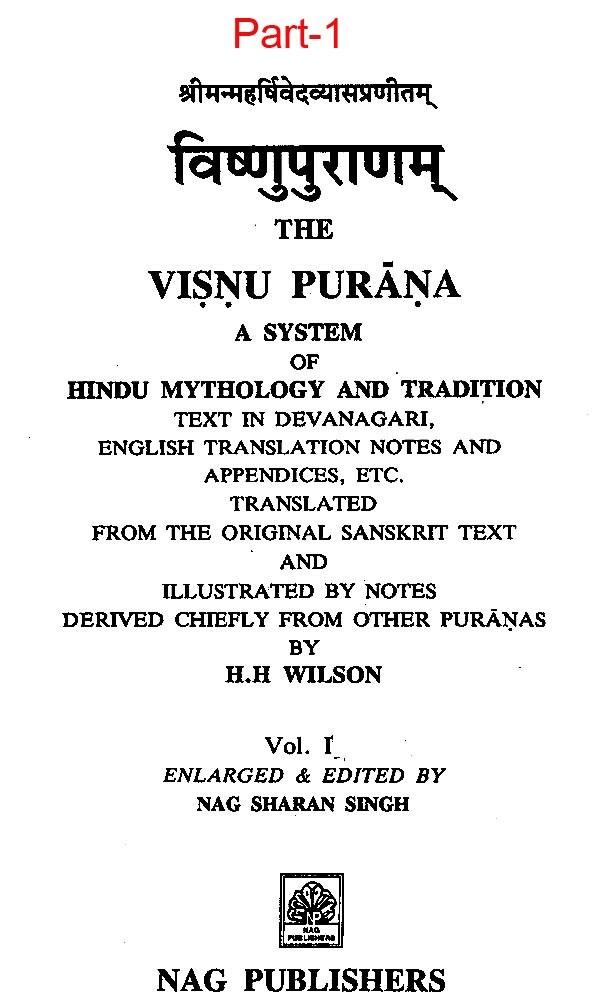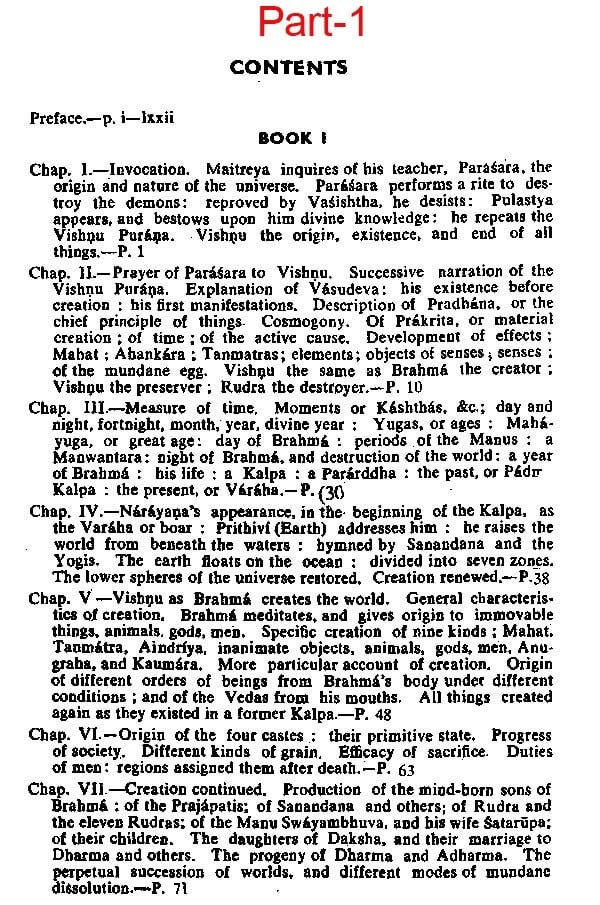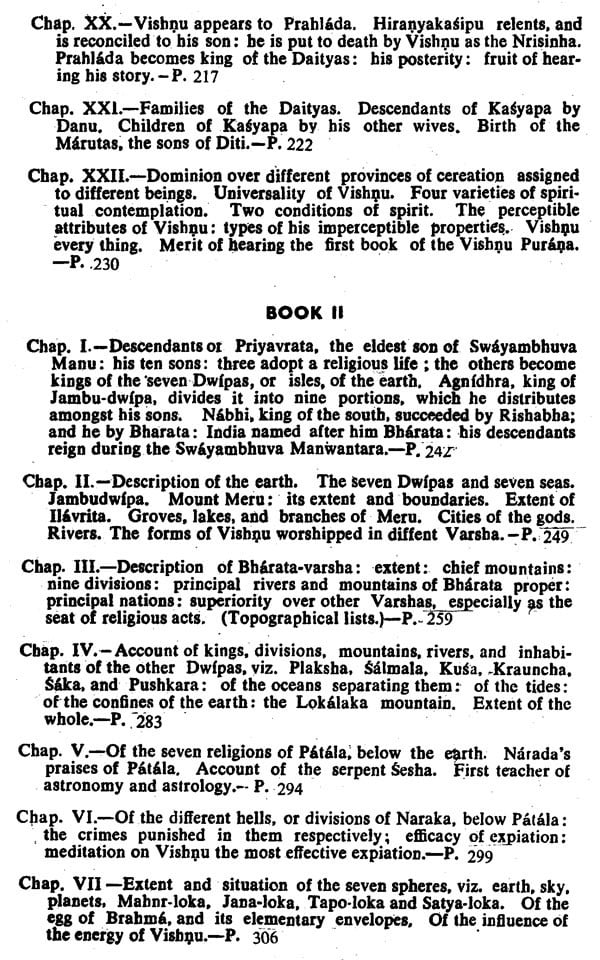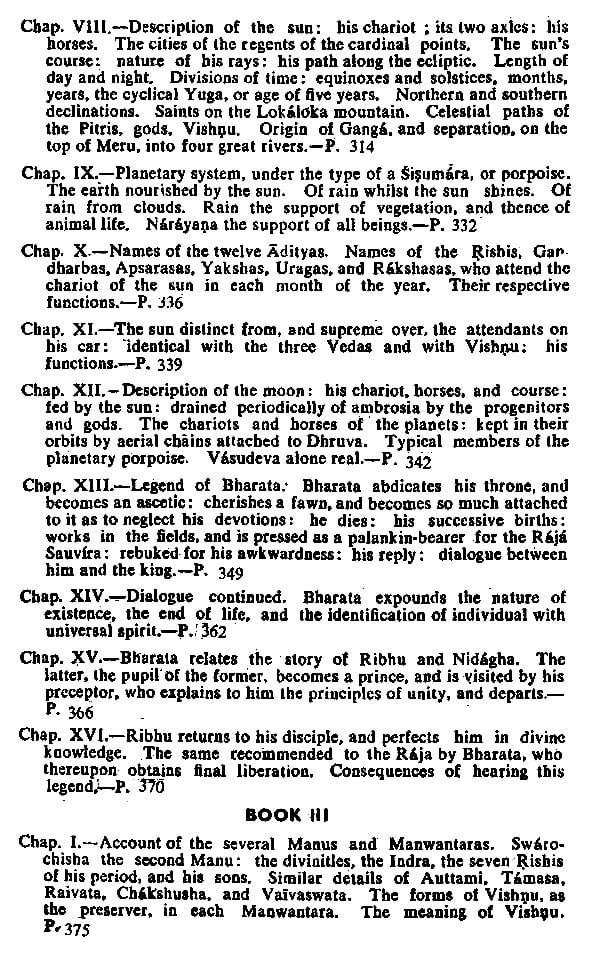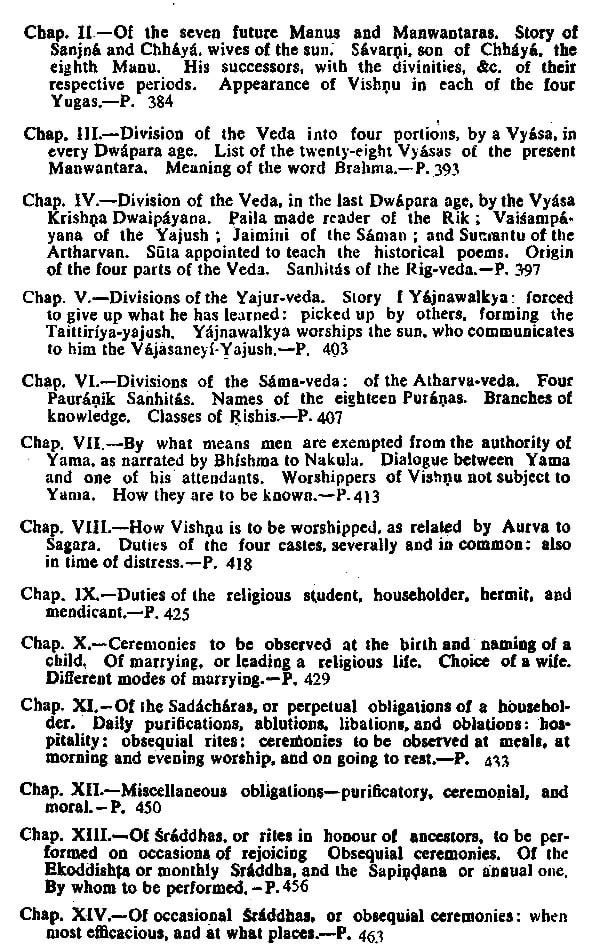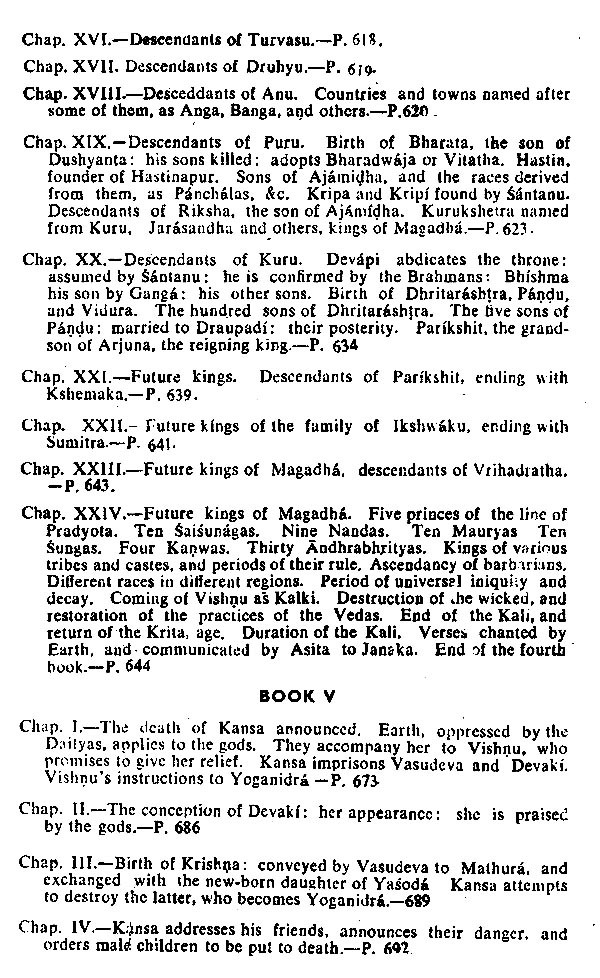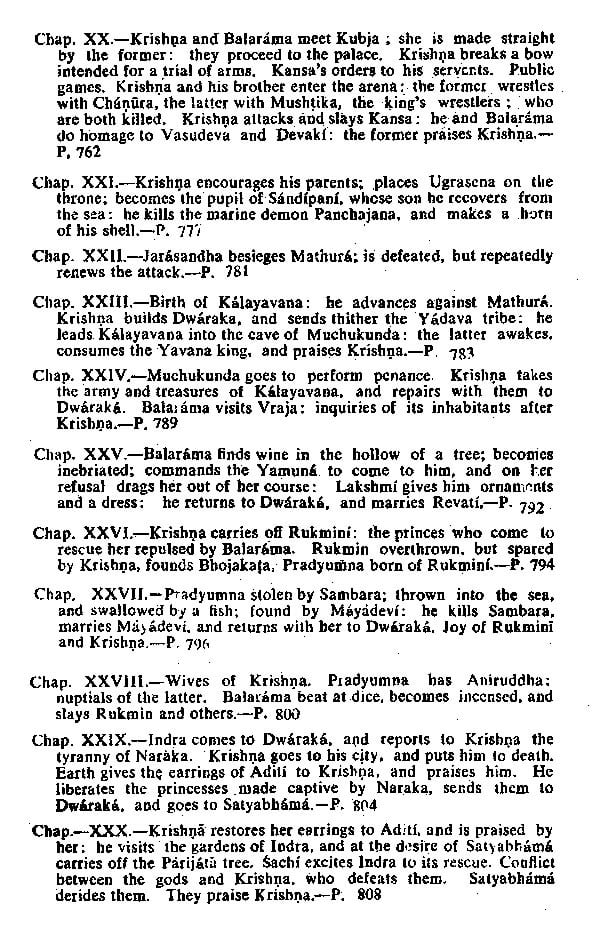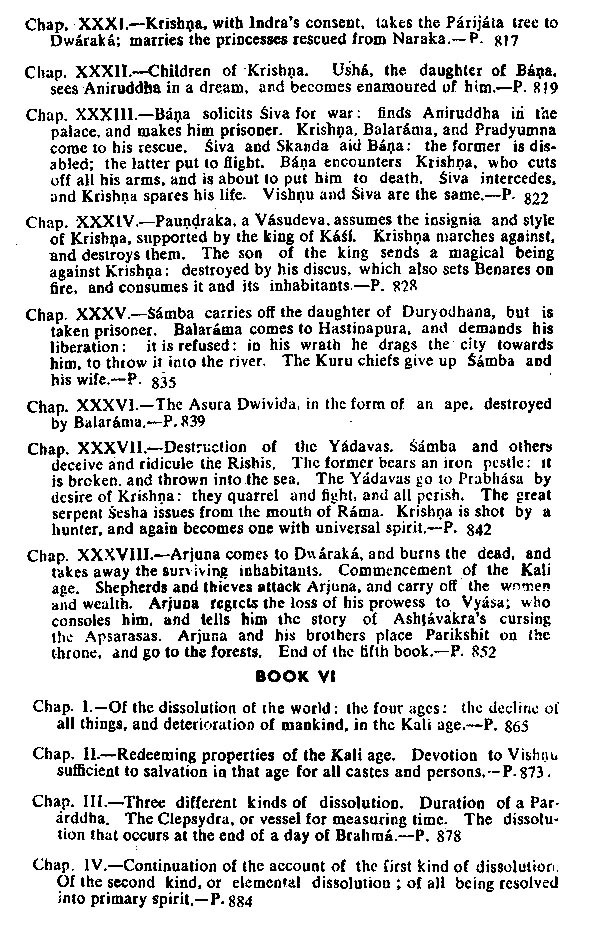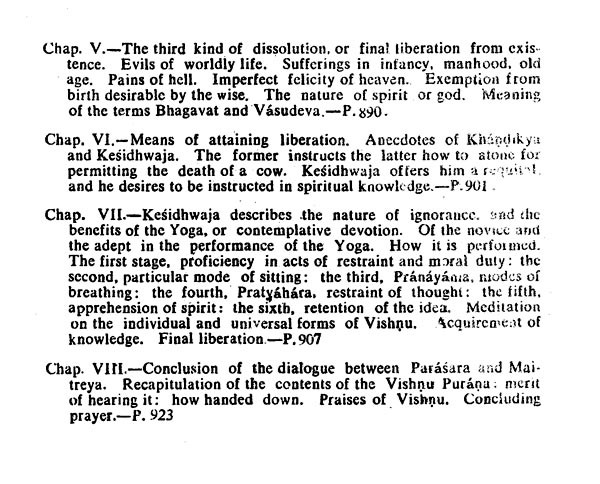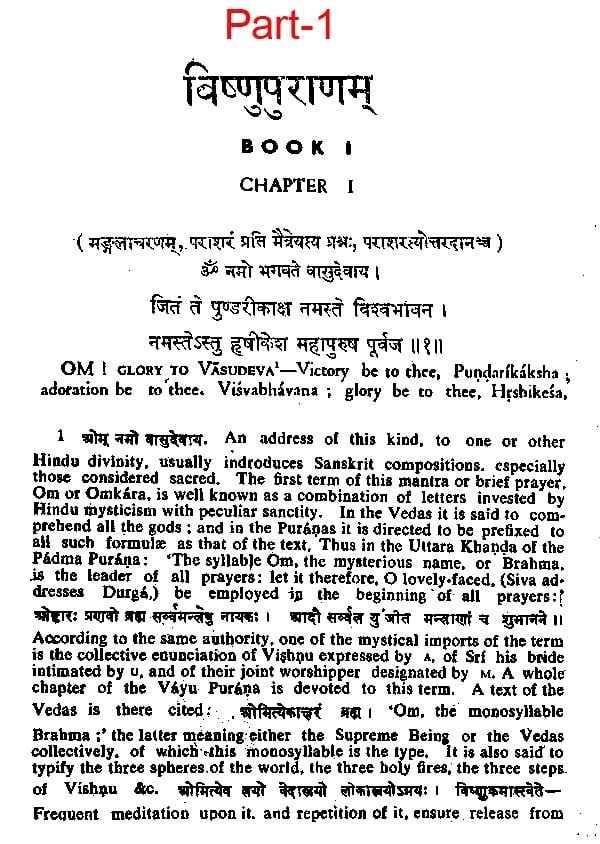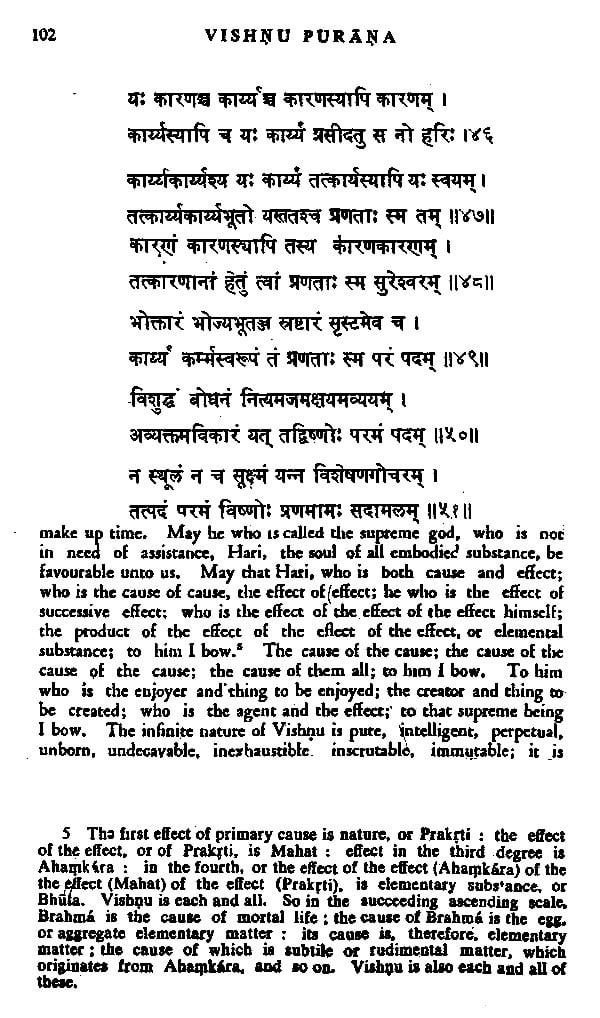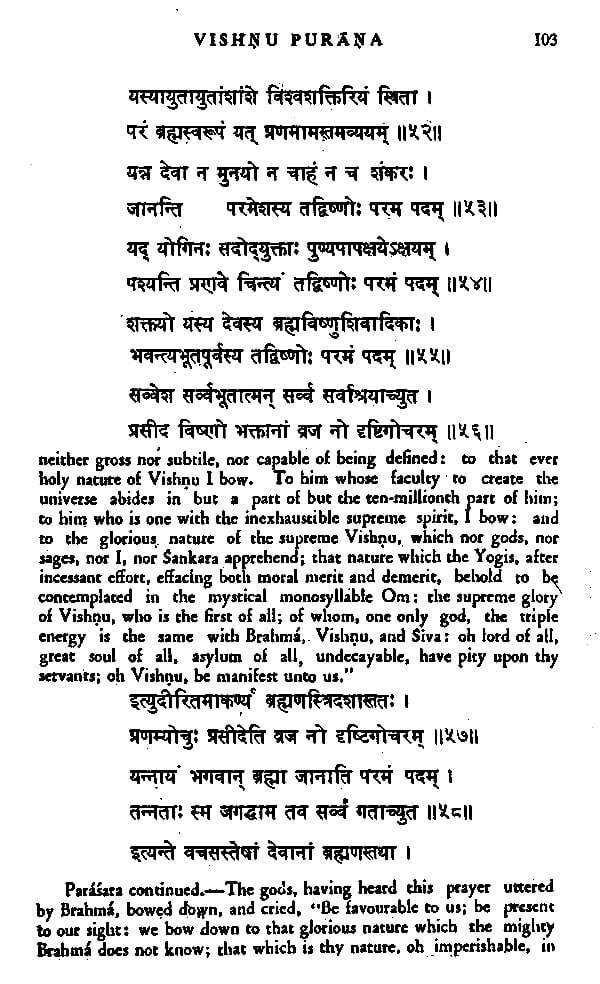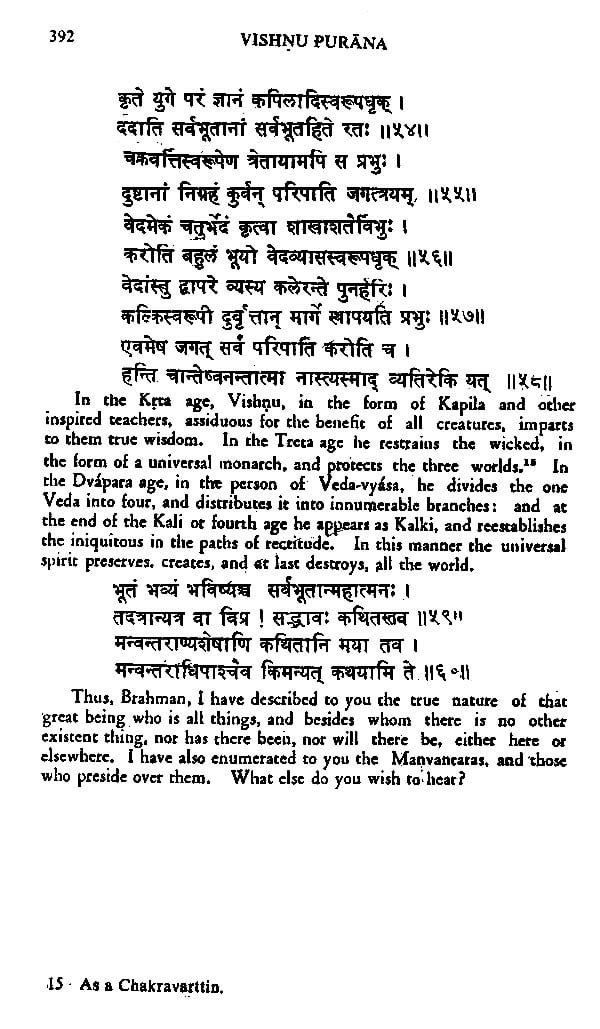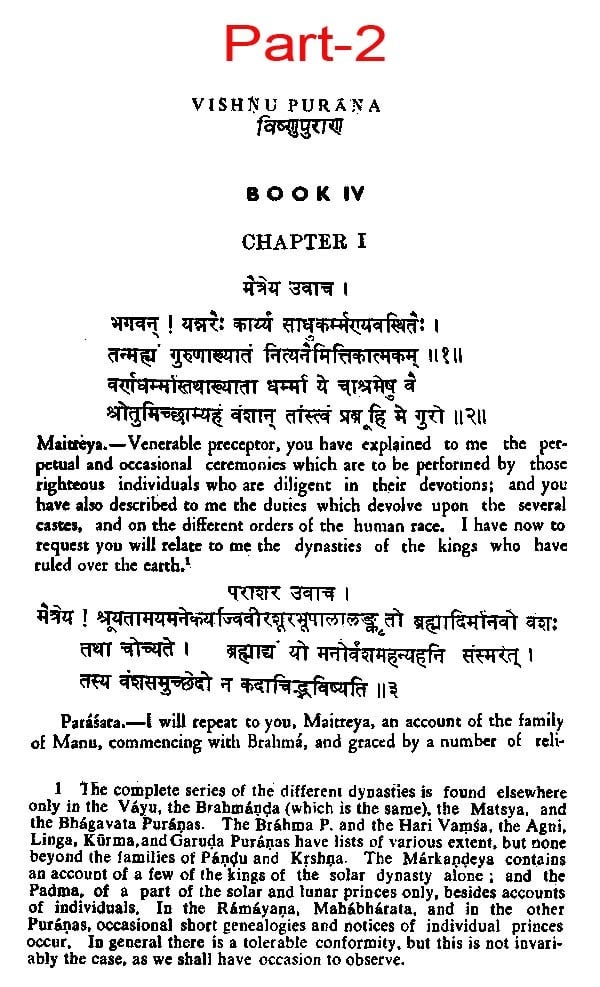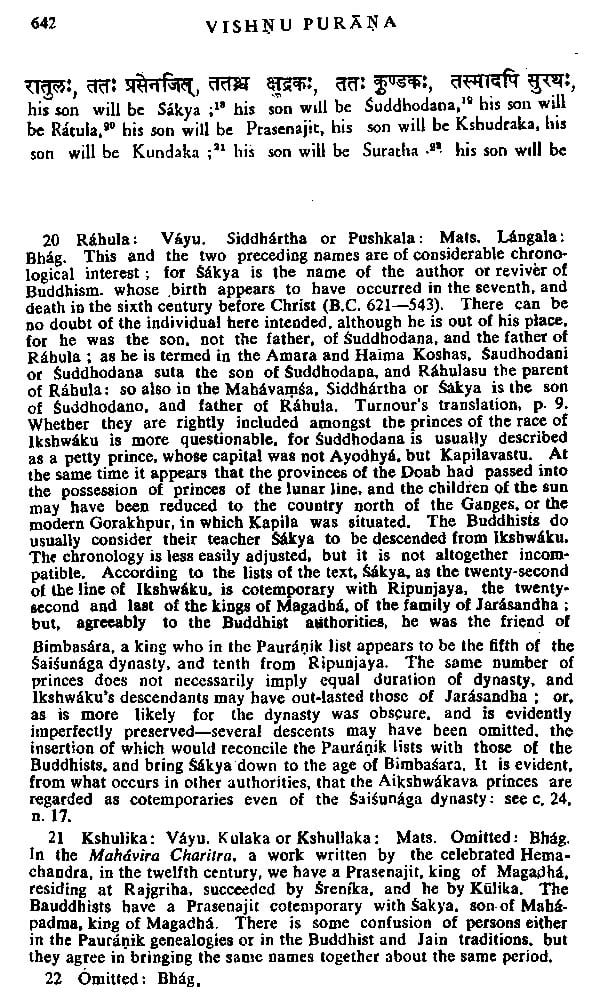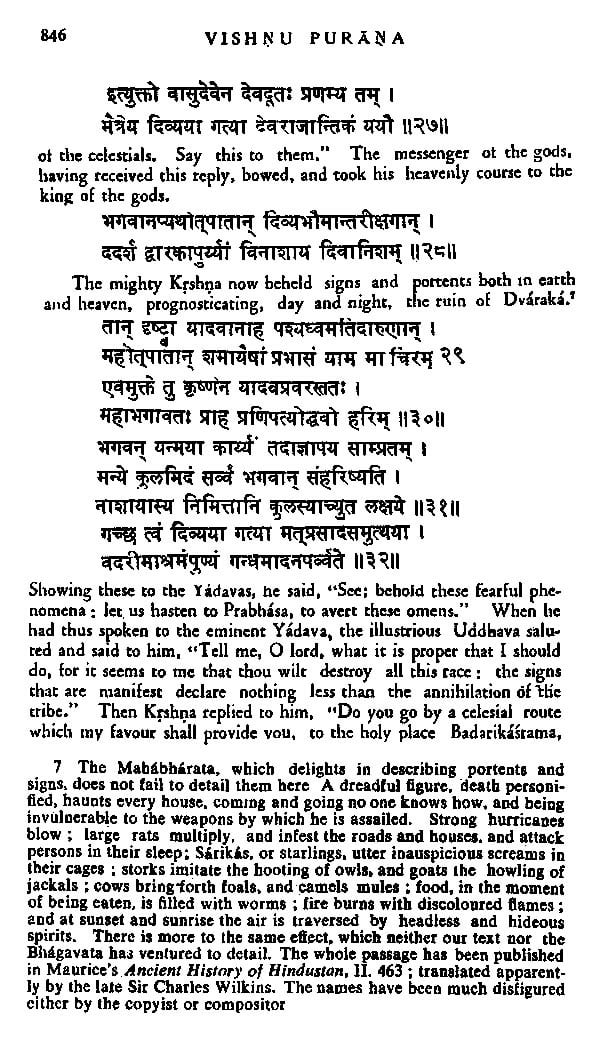
विष्णुपुराणम्- The Visnu Purana: Text in Devanagari, English Translation & Notes Verse-Wise (Set of 2 Volumes)
Book Specification
| Item Code: | AZE415 |
| Author: | Nag Sharan Singh |
| Publisher: | NAG PUBLISHERS |
| Language: | SANSKRIT TEXT WITH ENGLISH TRANSLATION |
| Edition: | 2003 |
| ISBN: | 8170810426 |
| Pages: | 1046 |
| Cover: | HARDCOVER |
| Other Details | 9.00x6.00 |
| Weight | 1.24 kg |
Book Description
From the materials to which we have hitherto had access, it seems probable that there have been three principal' forms in which the religion of the Hindus has existed, at as many different periods. The duration of those periods, the circumstances of their succession, and the precise state of the national faith reach season, it is not possible ego' trace with any approach to accuracy. The premises have been too imperfectly determined to authorize other than .conclusions of a general and somewhat vague description. and those remain to be here- after ,confirmed or corrected by more extensive and satisfactory research.
The earliest form under which the Hindu. ..gian appcears is that caught in the Vedas, The style of, the language. and the purport of the composition of those works. as far as we are acquainted with them, .indicate a date long anterior to that of any other class of Sanskrit writings. It is yet, however, scarcely safe to advance an opinion 'Of the precise belief or philosophy which they inculcate. To retable us to judge of their tendency, we have only a general sketch of their arrangement and contents, with a few extracts, by Cole-' broke, in the Asia';, ReseaTCh6$1; a few incidental observations by Ellis, in the same miscellany"; and a translation of the first book of the Saphita. or collection of the players of the Rigveda, by Rosen-; and some: of the Upanishads, or speculative treatise., attached to, rather than part of, the Vedas, by Rammohun Roy. Of the religion taught in the Vedas, Colebrook’s opinion will probably be received as that which is best needed to deference, as certainly no Sanskrit scholar has been equally conversant with the original works. "The real doctrine of the Indian scripture is the unity of the Deity, in whom the universe is comprehended; and the seeming polytheism which it exhibits, offers the elements and the stars and planets as gods. The three principal manifestations of the divinity, with other personified attributes and energies, and most". of the other gods of Hindu mythology, are indeed mentioned, or at least indicated, in the Veda. But the worship of deified I;croes is. no part of the system; nor are the incarnations of deities suggested in any portion of the text which 1 have yet seen, though such are sometimes hinted at by the commentators . Come of these statements may perhaps require modification; for without a careful examination of all the prayers of the Vedas, it would be hazardous to assert that they contain no indication whatever of hero-worship; and certainly they do appear to allude occasionally to the Avataras, or incarnations, of Vishnu, Still, however, it is true that the l'reyailing character of the ritual of the Vedas is the worship .of the personified elements; of Agni, or fire; Indra, the firmament; Vayu, the air; Attala, the water; of Adyta, the sun; Soma, the moon; and other. elementary- and planetary personages. It is also true that the worship of the Vedas is for the most part domestic worship, consisting of prayers and oblations offered-in their own houses, not in temples-by individuals for individual good, and addressed to unreal presences, not to visible types; In a word, the religion of the Vedas was not idolatry.
**Contents and Sample Pages**
